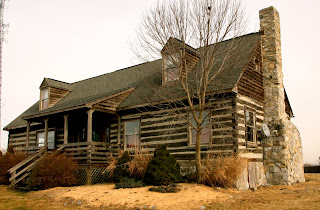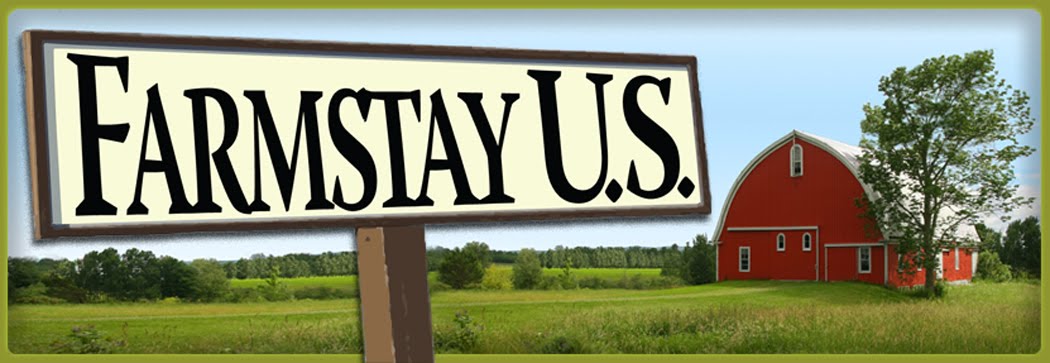Kitty Hockman Nicholas is a third generation dairy farmer who raises 20 Jersey cows, crops, and a managerie of sheep, pigs, chickens, donkeys, and peacocks on 50 acres in the Northwest corner of Virginia, near Winchester. The farm sits within view of five mountain ranges. Kitty grew up at Hedgebrook, and left the farm for college. In 1977, when Kitty’s brother died tragically in a farming accident, Kitty moved back to the farm to take over. Since then, through the death of her father and the end of her marriage, Kitty has kept her farm going with her spunk and creativity, and with help from her two daughters. “Everything on the farm is challenging,” says Kitty, “but that’s why we like it. And we like it because it’s our food.”
Four generations of women currently live at Hedgebrook. In addition to Kitty, the farm is home to her 93-year-old mother (also named Kitty), her daughter Shannon, and her granddaughter Meghan. There are no men in the family who are involved in the farm. But, says Kitty, “We consider that an asset – an opportunity. I couldn’t do it without Shannon [who also works full time away from the farm], and I don’t think she could do it without me. We have men who work for us, but we are woman owned and operated.” As Shannon explains, “Mom’s the farm manager– she takes care of all the animals – and I do all the reservations and cleaning for the Herds Inn.”
In 2005, Hedgebrook Farm was featured on the American Public Television show America’s Heartland, in a segment on women farmers. The segment ends with Kitty exclaiming: “I can’t tell you how excited I am to be a lady farmer. So go for it, ladies!”
In previous generations, the men of the family ran Hedgebrook Farm. Kitty’s grandfather founded the farm in 1906. He raised Hereford beef cattle and grew 6 acres of apples. He cared for his apples with no less than 15 tractors, and he sprayed often with pesticides to keep insects from damaging the tasty crop. In retrospect, says Kitty, “I think my grandmother was allergic to the spray. All of us probably were.” One acre of apples still stands today, but because Kitty and Shannon don’t believe in spraying pesticides (the farm is pesticide-free), they say the apples only do well in dry years, when insects aren’t as much of a problem.
 In 1949, Kitty’s father transitioned Hedgebrook Farm to a dairy. He started with 20 Holstein cows, the quintessential black and white variety that produces a high volume of milk. When Kitty took over, she switched the herd to Jerseys, a smaller brown breed with big, beautiful eyes and especially rich milk. As Kitty puts it, “Jerseys are in my blood.” Her grandmother’s family raised Jerseys, and when Kitty was young, she asked her father to buy a Jersey calf for her to raise. When he did, as Kitty recalls, she named the calf “Liberator’s Dave Peg.” Says Kitty, “Having that Jersey was really important to me. She produced really high quality milk.”
In 1949, Kitty’s father transitioned Hedgebrook Farm to a dairy. He started with 20 Holstein cows, the quintessential black and white variety that produces a high volume of milk. When Kitty took over, she switched the herd to Jerseys, a smaller brown breed with big, beautiful eyes and especially rich milk. As Kitty puts it, “Jerseys are in my blood.” Her grandmother’s family raised Jerseys, and when Kitty was young, she asked her father to buy a Jersey calf for her to raise. When he did, as Kitty recalls, she named the calf “Liberator’s Dave Peg.” Says Kitty, “Having that Jersey was really important to me. She produced really high quality milk.”When Shannon was young, according to Kitty, 36 dairy farms were spread through Clarke and Frederick Counties. Now, each county has only three dairies. Kitty attributes the survival of her farm in part to the niche markets she’s developed. Today, Kitty sells some of the milk from her herd in bulk to Hood, a dairy processor and distributor. She sells the rest direct to the consumer through an innovative “cow boarding” program.
Cow Boarding
The milk we buy in stores is pasteurized, or heated to kill any pathogens. Raw milk, on the other hand, is unheated, and because of the FDA’s position that unpasteurized milk is dangerous, it is illegal to buy or sell in most states. Raw milk advocates argue that the FDA grossly overstates the risk, that raw milk is healthier and tastier than pasteurized milk, and that it may even cure asthma and allergies. (To read a Washington Post report about raw milk and Hedgebrook Farm’s program, click here.)
Kitty says, because of the fear about raw milk when she was young, “My dad didn’t let anyone get milk out of the tank. Nobody was allowed to drink it. But we’ve come full circle back to the time of my great grandparents … my granddaughter was raised on raw milk.”
State laws regarding raw milk sales vary. In Virginia, it is illegal to buy or sell raw milk, but it is legal to drink raw milk from a cow that you own. In order to make their delicious, Grade A raw Jersey milk available to more people, in 2001 Kitty and Shannon started a cow boarding program. Customers can buy a share of one of the Hedgebrook Farm Jerseys. Each cow is divided into 25-35 shares, depending on how much milk she produces, and owning a share gives customers a gallon glass jar full of fresh milk every week. Customers can pick up their milk from the farm, or can opt to have it delivered by van, for a fee, as long as they live within Northern Virginia. Both the cow boarding program and the popularity of raw milk have grown tremendously since 2001.
Kitty also welcomes bartering, another legal way to get raw milk in Virginia. She says, “Someone can come here and, for instance, trade me a bottle of wine for a gallon of milk. We like bartering – it’s what this country was founded on.”
Kitty says of farming, “In good years it’s good, but in bad years it’s very hateful, like last year. Without the cow boarding program – without our niche markets -- we might not have been able to survive.” Through the years, Hedgebrook has hosted a corn maze, pumpkin patch, weekend farm market, and summer camp. To have a little more time for themselves, Kitty and Shannon have limited agritourism on the farm to what they call their greatest successes – the cow boarding program and Herds Inn. And as she’s done for over 30 years, Kitty continues to host school tours.
The Herds Inn
The Herds Inn is a hand-hewn log home that Kitty and Shannon rent to one group at a time. The two-bedroom home was built with wood from two 1800s tobacco barns that once stood in South Boston, VA. The floors, trim, and doors are also recycled from cypress wood vinegar vats from the National Fruit Apple Plant. Kitty originally designed the Herds Inn as her own home, but she decided to move instead into the Hedgebrook manor house to care for her mother.
The Hockman women, always creative entrepreneurs, decided to open the Herds Inn to guests in 2000. Their first guest, as it happened, was a reporter from the Washington Post (you can read his report here).
In addition to its two bedrooms, the Herds Inn has two full baths, a stocked kitchen, a living room with satellite TV and sofa bed, and laundry. The house can sleep up to eight guests.
Herds Inn guests are welcome to watch Kitty milking the herd each morning or evening using Virginia’s last remaining glass tube milking machine. Visiting kids can also try hand milking the cows. The sheep, pigs, and goats appreciate visitors, and guests can watch different farm happenings – like lambing and sheep shearing -- depending on the season.
Off the farm, says Shannon, Winchester is full of things to do. The area’s biggest tourist draw is the Apple Blossom Festival, a week of music, parades, and dancing that attracts 250,000 people each spring.
If you go:
Rates start at $125/night for double occupancy, and $750/week. A two night minimum stay is required. Additional guests (up to 8) are $20/night, per person. Children are welcome; kids under two stay free. Pets cannot be accommodated.
Contact:
innkeeper@theherdsinn.com
1.866.783.2681
The Herds Inn
688 Shady Elm Road
Winchester, VA 22602
688 Shady Elm Road
Winchester, VA 22602





















.jpg)